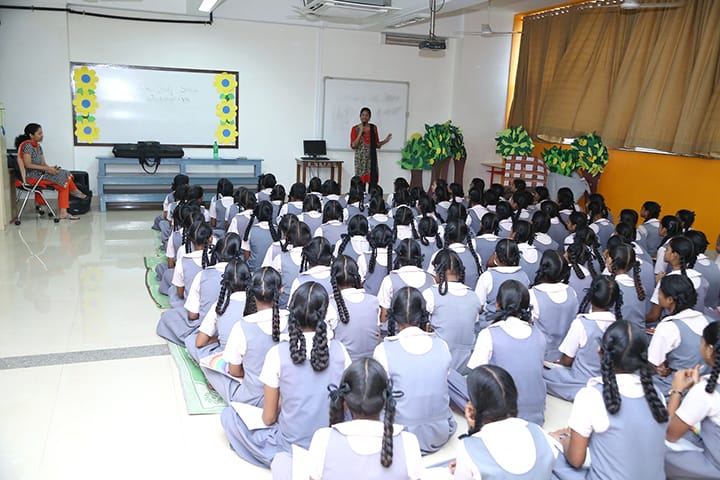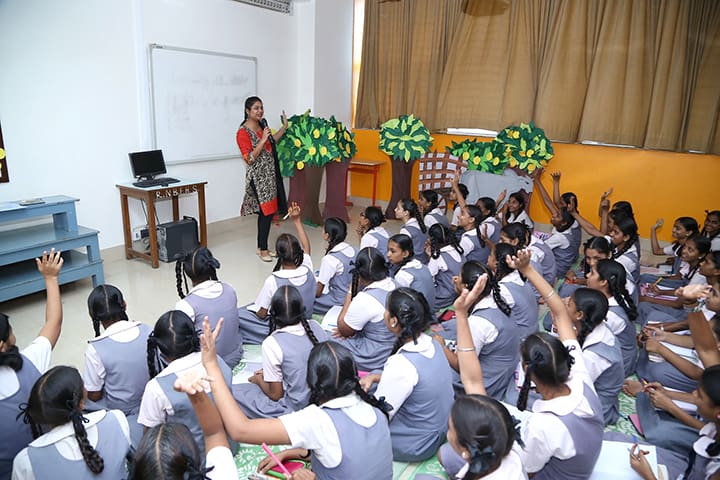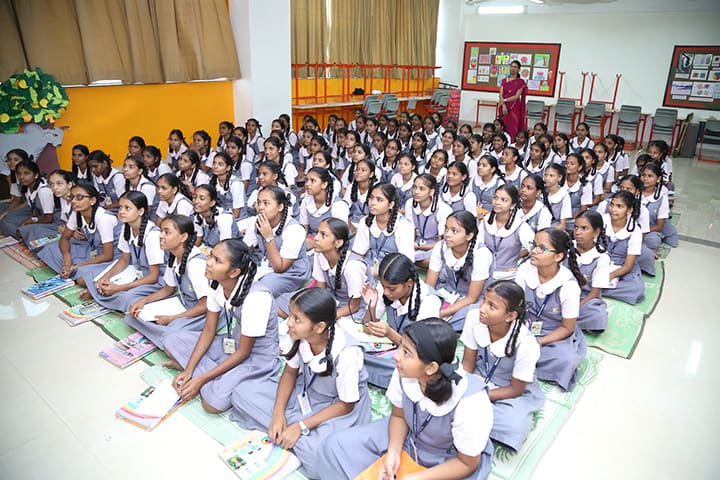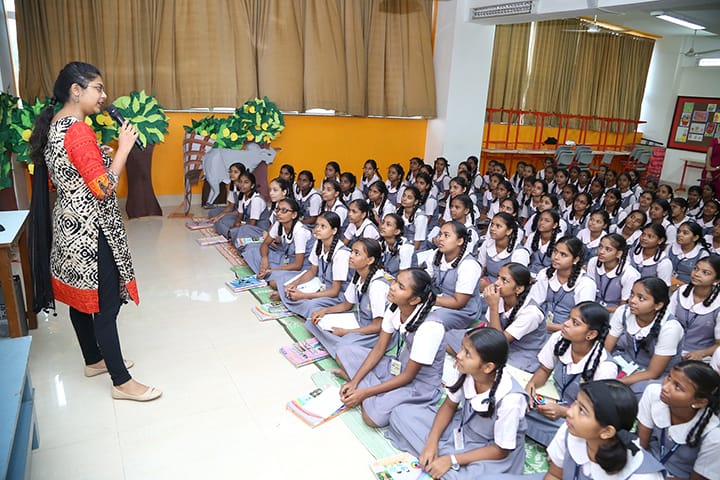RMCC had in the previous months conducted personal counselling sessions with the students of KGSS, specifically the 10th graders. In the course of counselling one problem that was common to all students was difficulty in studying and remembering course material. Keeping this in mind RMCC planned an Effective Study Skills Workshop module for the 10th grade students, as they are approaching their board examinations.
First, a Learning Styles Checklist was administered to all the students of 10th grade. This assessment was beneficial in identifying which particular Learning Style does the student fit into. This was done because every individual has a specific learning style and when studying if the specific modality that the student fits into is engaged then the learning is most effective. On the basis of the learning style checklist the students were divided into three groups According to their learning styles- audio-visual [AV], audio-kinaesthetic [AK], and visual-kinaesthetic [VK].
The workshop was conducted for the AV, AK, and VK groups on 8th August, 16th August and 18th August 2017, respectively, by the RMCC counsellors. The workshops were initiated by an introduction of RMCC followed by an orientation of the students to heir learning style and how to adapt various strategies according to their learning style.
The following are the techniques that were taught to the students:
Multi-modal learning: learning though engaging more than one modality.
Mnemonic strategies which are designed to aid long-term recall; through this technique, more than one neural connections of the content are made in the brain, this helps the student remember the material for very long periods of time.
SQ3R, Skimming and use of Side Notes was explained, as the effective ways to learn a chapter.
The construction and application of Mind Maps and Flow charts was demonstrated, to make their learning more systematic, comprehensive and remember the learnt material for longer period of time.
Muscle relaxation and Guided Imagery was taught to groups that had visual/auditory and kinaesthetic aspects; this was taught to reduce stress and curb restlessness, so that they can bring their attention back to the class or personal studies during long study hours
A short module on Time Management was conducted as well to enhance the efficiency of study time and to be able to manage various activities and studies, within the stipulated time.
The workshops were interspersed with fun activities in accordance with their learning style to keep the students engaged.
The students in all the groups were very active and participative. They were eager to learn and from their responses it was apparent that they grasped the concepts; they showed how they applied the techniques themselves, after the workshop was over. The students mentioned that they enjoyed themselves as the workshop was very interactive and beneficial for them.






